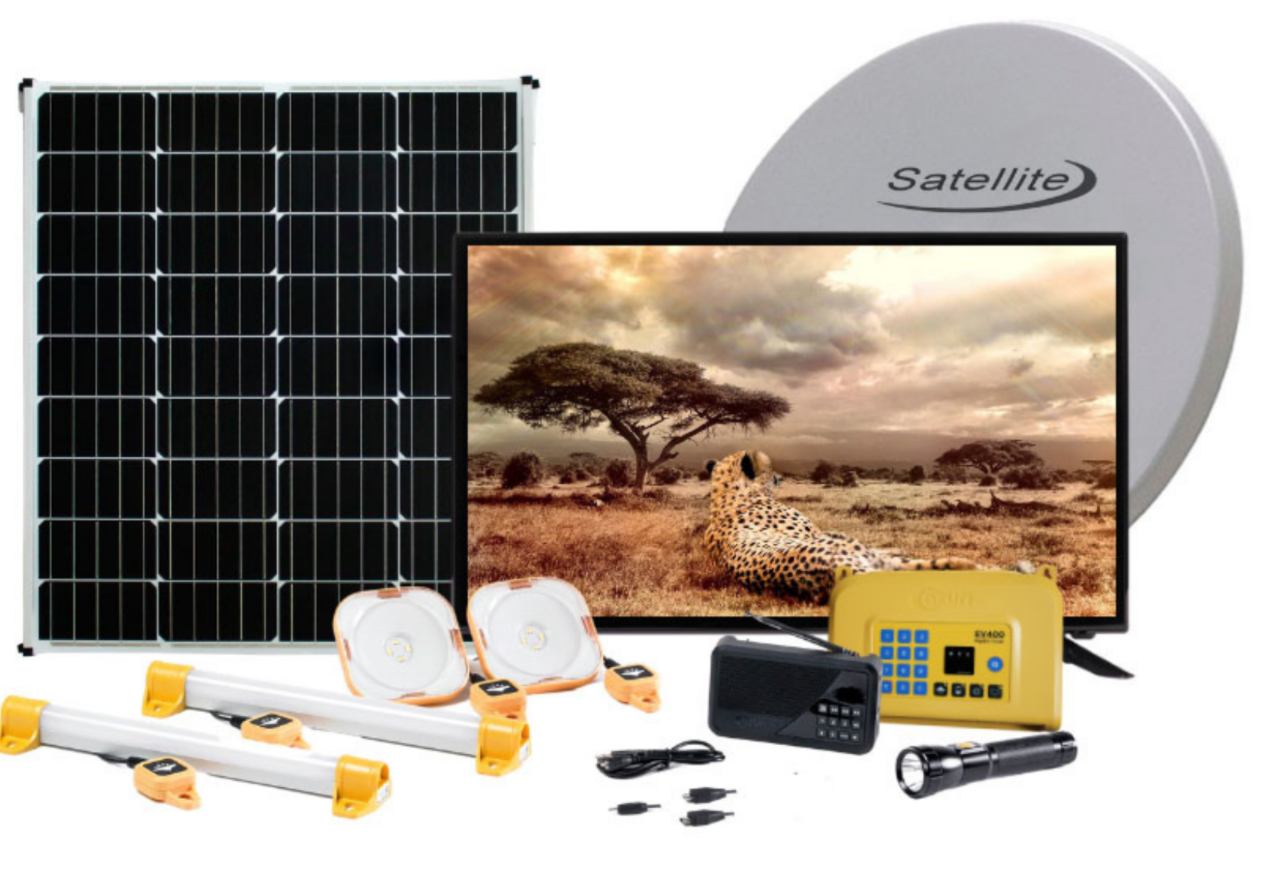November 16th, 2020 by Zachary Shahan
As we’ve been reporting recently, everyone (the fossil-friendly International Energy Agency) and their mother (Lazard) have concluded that solar and wind offer the cheapest options for new electricity capacity, and new solar and wind power plants can even undercut the operational costs of existing fossil and nuclear power plants. We mostly think of this in terms of power plants supplying electricity to utilities, or at least to businesses and homes. However, low-cost solar goes far beyond that — it is tied to specific appliances or electronics in many off-grid and limited-grid communities.
One fun new example of that is a new PayGo solar powered TV offered in Kenya by Azuri Technologies. The TV400 is a 32″ television that is an upgrade from the 24″ solar-powered TV Azuri launched in 2017.
But come on — how much TV can you watch via some small solar panels? According to Azuri, you can watch TV all day and for up to 10 hours at night. (Not recommended.)
The TVs also come with satellite TV service, “even in areas where there was no grid and no terrestrial TV signal.”
Notably, Azuri’s solar-powered TVs have been particularly popular and useful in this time of covid because families have used them in order to access virtual educational materials. “Demand for TV systems spiked in 2020 as customers sought to access the new educational content that is being broadcast over the satellite TV system,” the company reports.
Here are a few more details of what a PayGo Solar TV buyer is getting:
- 80W solar panel
- 160Wh LFP battery (expected lifespan of 10 years before any need for servicing)
- two high power tube lights,
- two spot lights
- rechargeable radio
- rechargeable torch
- USB phone charging
- subscription to Zuku Smart package (“offering over 55 channels including all local content plus the EDU channel featuring the National Curriculum content, BBC and National Geographic documentary channels, Movies, Music and Religious programs”)
What about cost, say you? The solar TV comes at an upfront price of KES 8,999 ($82.39), followed by KES 129 ($1.18) per day for 30 months. After those 30 months, “the system is unlocked and all additional power is free of charge.”
“How we rebuild from COVID-19 will set the course for our economies, and our world, for a generation. Kenya needs to seize this opportunity to create a clean, resilient economy that is fit for the future, creating jobs that will last,” British High Commissioner to Kenya Jane Marriott notes. “We have put a clean and resilient recovery from Covid-19 at the heart of our partnership in Kenya, strengthened by cutting edge British innovation from companies like Azuri who are helping to expand clean energy in rural areas.”
Images courtesy Azuri Technologies
Appreciate CleanTechnica’s originality? Consider becoming a CleanTechnica member, supporter, or ambassador — or a patron on Patreon.
Sign up for our free daily newsletter or weekly newsletter to never miss a story.
Have a tip for CleanTechnica, want to advertise, or want to suggest a guest for our CleanTech Talk podcast? Contact us here.



